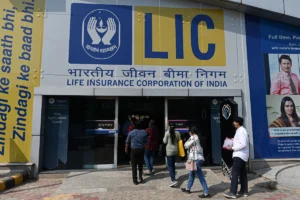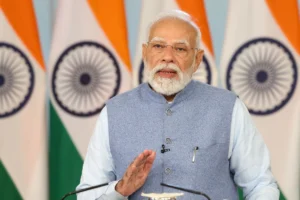
H3N2 in India
H3N2: Amid the rise of the seasonal influenza subtype H3N2, the Union Health Ministry has expressed an increase in the COVID-19 positivity rate in some states. The ministry has said that it needed to be promptly addressed.
Request to follow guidelines
The Union Health Ministry has requested every state and union territory to follow operational guidelines for integrated surveillance of respiratory pathogens presenting as cases of influenza-like illness (ILI) or severe acute respiratory infection (SARI).
Moreover, the states were also requested to take a stock of hospital preparedness such as the availability of medicines and cylinder medical oxygen, and vaccination coverage against viruses like COVID-19 and influenza.
In a letter to states and UTs, Union Health Secretary Rajesh Bhushan wrote, “While the COVID-19 trajectory has decreased substantially in the last few months, the gradual rise in COVID-19 test positivity rates in some states is a concerning issue that needs to be promptly addressed.”
Despite a low number of new cases, an equally low number of hospitalizations and significant advances made in terms of COVID-19 vaccination coverage, he said in his letter.
Need for a five-fold strategy
There is an urgent need to remain vigilant and focus on the five-fold strategy of test, track, treat, vaccination and adherence to COVID-appropriate behaviour, he added.
Recently, a meeting was held to review the situation with the central ministries, departments and organizations concerning the increase in ILIs and SARIs witnessed in states and UTs.
Further, the Union Health Secretary noted that while influenza is an annual seasonal occurrence, in the present season, a variety of weather conditions and behavioural reasons — less than adequate attention to personal hygiene, coughing without adequate protection, closed indoor gatherings of people, etc. — make the environment conducive to the circulation of a number of viral respiratory pathogens like Influenza A (H1N1, H3N2 etc.) and adenoviruses.
H3N2 in India
“Of particular concern is a preponderance of Influenza A (H3N2) being detected in the samples being analysed in various labs. It should also be kept in mind that young children, old age people and people suffering from co-morbidities are particularly at risk and vulnerable to H1N1, H3N2, adenoviruses, etc,” Bhushan said.
According to the tests done by viral research and diagnostic labs (VRDLs), nearly 25.4% of respiratory samples tested positive for adenoviruses since January 1.
In the letter, Bhushan underlined, “While most of these agents typically cause a similar mild and often self-limiting illness manifesting acute respiratory infection with fever and cough, in some cases, particularly old age people, people with obesity and other co-morbidities as well as pregnant females, those infected may suffer from a more severe manifestation of these diseases requiring hospitalization.”
Moreover, he said, “In order to limit transmission of these diseases, it is important to raise community awareness regarding adherence to respiratory and hand hygiene and promoting early reporting of symptoms, and limiting the contact of those people who are suffering from respiratory illness.”
H3N2 Deaths in India
The statement came a day after India recorded two of its first two deaths due to seasonal influenza subtype H3N2, one each from Karnataka and Haryana. Shortly after the deaths were reported, the government released a statement that said it was closely monitoring the situation and cases are expected to decline from month end.
Union Health Minister Mansukh Mandaviya held a meeting with the officials concerning the same. Taking to Twitter, Mandaviya said, “Held a meeting to review rising cases of #H3N2 Influenza virus in the country. An Advisory was issued to states to be on the alert and closely monitor the situation. The government of India is working with states and extending support for public health measures to address the situation.”
Advisory by ICMR
Last week, an advisory issued by the Indian Council of Medical Research (ICMR), urged people to wash hands with soap and water if symptomatic, wear masks and avoid crowded places, and cover their mouth and nose while sneezing and coughing. The apex health research body also advised people to take plenty of liquids, avoid touching their eyes and nose, and take paracetamol for fever and body aches.
To read more such news, download Bharat Express news apps






















